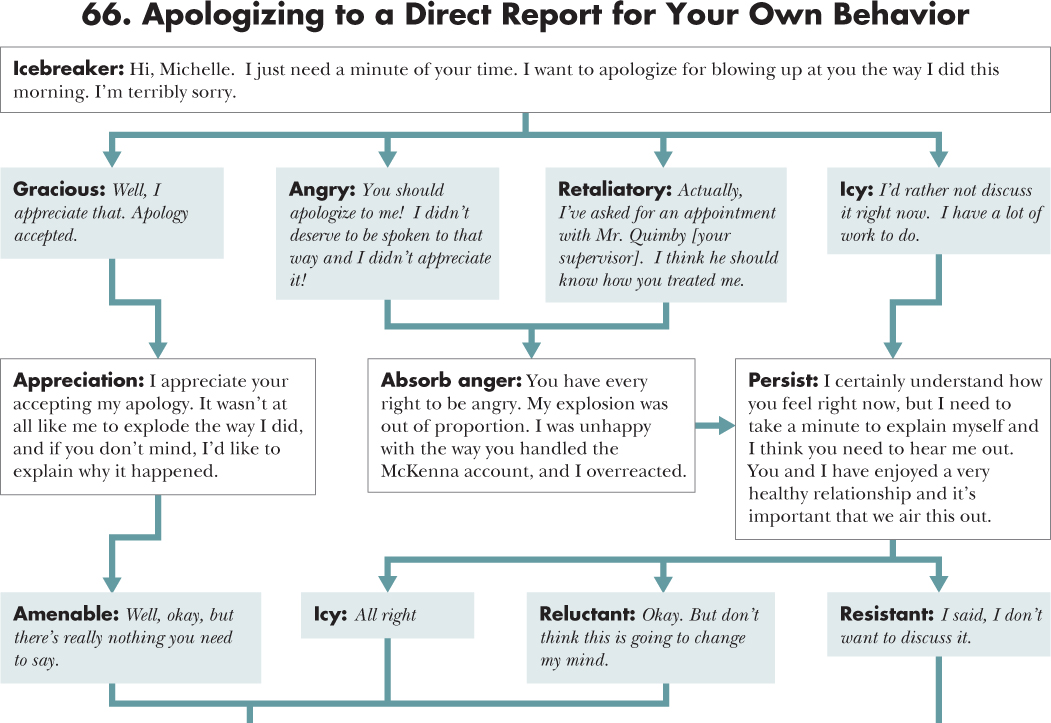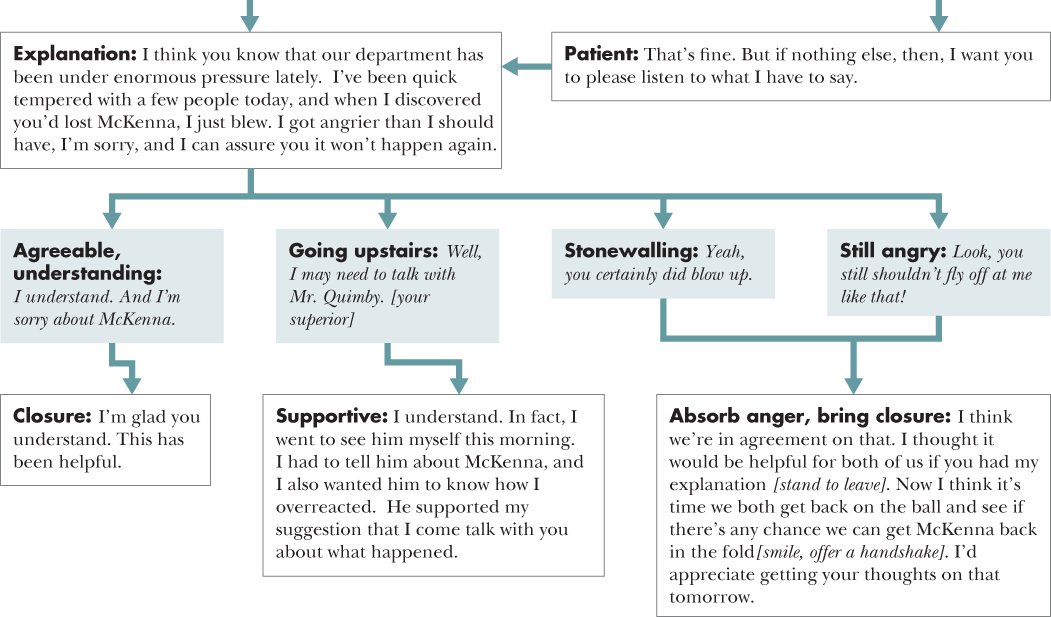66
Apologizing to a Direct Report for Your Own Behavior
STRATEGY
In apologizing to a direct report, you are in essence turning the tables on the power dynamic that exists between the two of you. A dicey proposition, you can use it to your advantage by demonstrating that you're not too big to admit when you've made a mistake. You also want to be clear about what you're apologizing for; you may have had every right to be angry with a direct report for something they did or failed to do, but now regret the severity of your tirade.
TACTICS
- Attitude: Show honest contrition and a willingness to admit your mistake. But don't blur the distinction between supervisor and direct report. Don't grovel.
- Preparation: Before meeting with the individual, make sure you've calmed down sufficiently and composed yourself adequately. Go over this script in your head; know what you want to say. Go to their office and tell them you want a moment of their time.
- Timing: Ideally you want to have this conversation on the same day the behavior occurred. You also want enough time to elapse so that you've had opportunity to cool down and the individual has recovered from the blow. But you don't want to wait too long; feelings will just fester. Getting on top of this quickly will be appreciated by the aggrieved.


- Behavior: Be firm, confident, and relaxed. Be prepared for some anger and resistance, and don't surrender to any desire you might have to react impulsively. More important than making sure your apology is accepted, you want to make sure it's heard. Also, if necessary, at the end of the dialogue, reassert your status as this person's supervisor, perhaps by requesting some work from them.
ADAPTATIONS
This script can be modified to:
- Apologize for wrongly accusing a direct report of some form of malfeasance.
- Apologize for chastising an individual in front of their colleagues.
KEY POINTS
- Be very clear about what you're apologizing for. You didn't harass your direct report. You didn't unfairly single them out. You overreacted.
- Don't be hesitant about gently reminding the individual that they were being reprimanded for a mistake they made.
- Behave like an employer even when you're apologizing. Keep control over the discussion by making sure your direct report listens to what you have to say.
- Make certain you have the last word.
..................Content has been hidden....................
You can't read the all page of ebook, please click here login for view all page.
